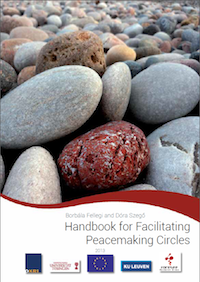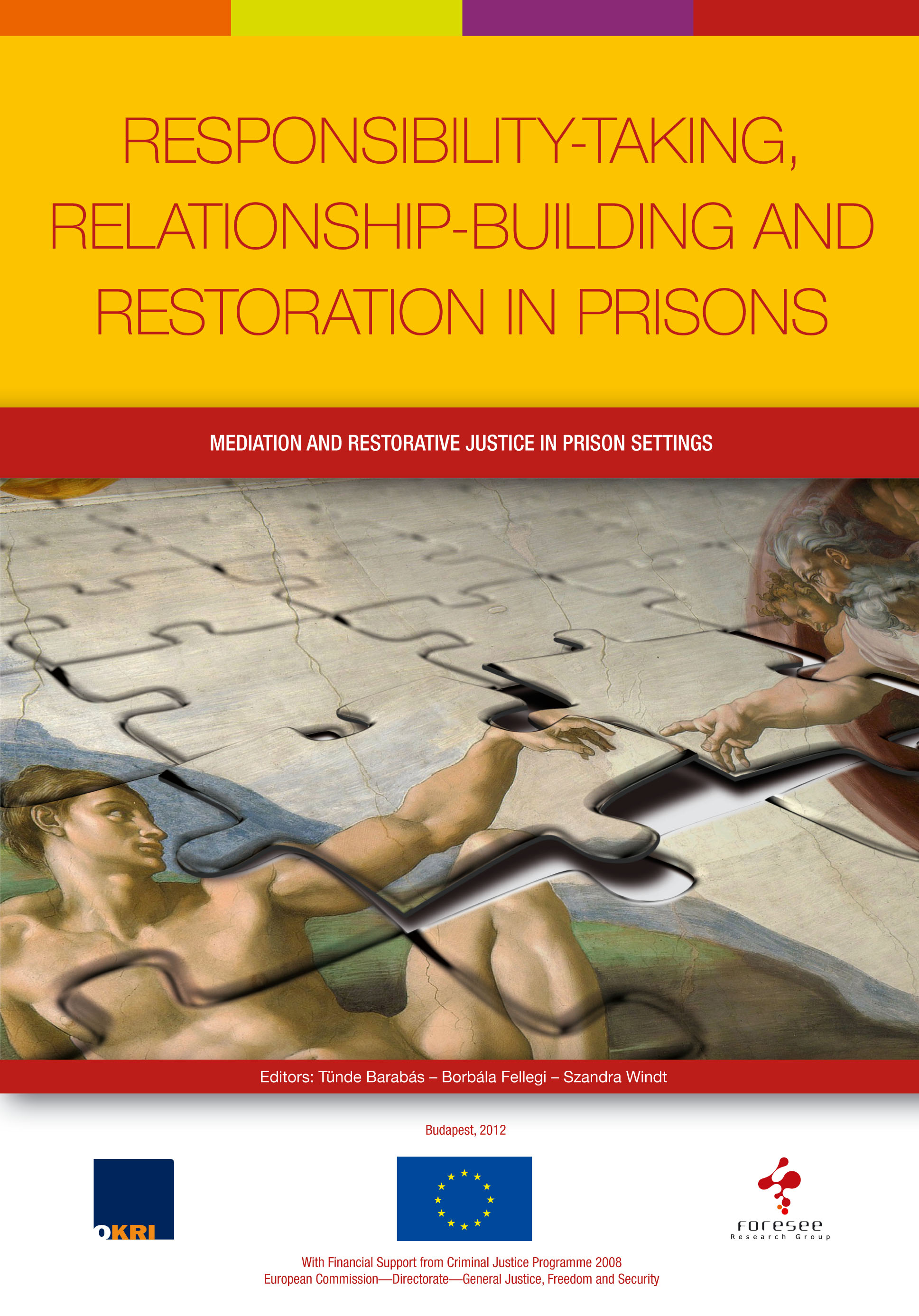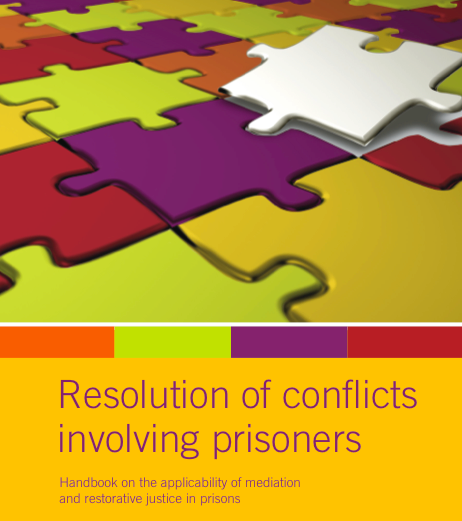
Training
In working out sustainable solutions for a given problem, the need for development of several competencies for affected people often emerges. With the help of Foresee’s interdisciplinary professionals, we develop and execute combined or subject-specific training programmes tailored to the given needs of the target groups. With our communication, tolerance and mediation training programmes, we aim to facilitate effective conflict resolution and to reduce and prevent prejudices arising in society. Individual or group training sessions are held for policy makers, practitioners of the social, justice and education system and for members of local communities .
2011. 04. 21
|
Handbook on the applicability of mediation and restorative justice in prisons. Our sense of justice and the need to protect our society require us to send people who commit serious crimes to prison. At least for a time… |
2010. 10. 28
|
At the end of October, 2010 a three days long interactive training organised for almost 30 staff members of the Balassagyarmat Prison, that introduced the theory of practices of restorative justice and their applicability in the prison settings, has been succesfully completed. The almost 30 participants included the warden and the executive of Balassagyarmat Prison, educators, inspectors, psychologists and other staff from the prison, the educators of Tököl Juvenile Prison, social workers, civilians, teachers, etc. |
2010. 06. 08
|
The practical excercises and principal lectures about the basic ideas, methods and possible application fields of mediation initiated the audience into new opportunities of conflict resolution with special emphasis on the state and results of reconciliative approach in the Central Eastern European region. The two weeks long international training organised by the partnerhip of the Central European University, the Hamline University School of Law and the Benjamin Cardozo School of Law between the 7-18th June lined up a number of international professionals such as Lela Love, Joseph Stulberg, Petra... |
2010. 05. 18
|
Due to the changings of the past years a new model of approach has become necessary in the Hungarian penal institutions as well. Foresee Research Group is participating in the achievment of this goal with several parallel programs. Associates of the National Institute of Criminology and the Gaol and Prison of Balassagyarmat... |
2010. 03. 29
|
The presentation given at the Crime Prevention Academy was theoretical and practical at the same time: it offered an overview of restorative justice's basic principals and practical models. The training aspired to be interactive, by creating an active group session and shared numerous films to... |
2009. 10. 13
|
The audience of dr. Borbála Fellegi's "Mentalhygienic interventional methods in preventing deviant lifestyle" presentation was orientated about the opportunities of adapting restorative approach and the possible results of invovling victims, offenders and their communities. All of this is especially remarkable from the point of view of professionals working with such conflicts. Through the daily practice of restorative techniques they can help the offenders to take responsability, regret, raise their restorative willingness and contribute to the relief of the... |
2009. 05. 12
|
Hungary is suffering of a large number of ethnic-based conflicts of which the majority involves Roma people. Recognising it as a serious problem, Foresee Research Group, together with its numerous consortium partners, ran an experimental project in 2009 funded by the Hungarian Crime Prevention Committee.
The project combined community building and different ADR (alternative dispute resolution) methods in a small rural Hungarian village. Throughout the project we provided training for the local people, including: ‘tolerance’, ‘mediation’ and a so-called ‘implementation training’, namely how to... |
2008. 02. 11
|
Foresee Research Group gave a three days training in co-operation with Partners Hungary Association, Central Office of Justice and Dr. Péter Téglás (prosecutor of Kiskunhalas) organized by the Crime Prevention Academy. Within the framework of the Crime Prevention Academy together with Dr. Tibor Kertész (Partners Hungary Foundation), Dr. Edit Törzs ( |
2007. 07. 16
|
The first contributors of the newly established probation supervision system of Serbia were selected out of professionals who had gained experience in prisons as psychologists or trainers. During the trainings held by internationally appreciated professionals groups of 15 people had the opportunity to get ready for their new role as a probation supervisor in the jurisdiction system. Dr. Borbála Fellegi, manager of Foresee Research Group contributed to the program as an invited... |



















